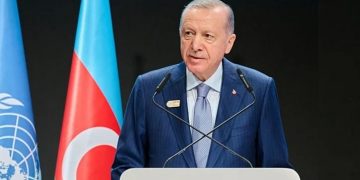End of the second Karabakh war marks an important change in the regional balance of power. An agreement has been signed between Armenia and Azerbaijan. Time will show if parties will abide by the agreement or if the nearly 30-year-old conflict finally has come to an end or not.
Considering the winners and losers of the Karabakh war, there are six main conclusions that can be derived from it.
First, there is now a new geopolitical context in the Caucasus. This new reality will surely influence the future of regional politics, which will have implications for the neighboring regions as well. West has been almost absent in the recent war and the agreement reached.
Second, Turkey has proven to be one of the prominent players in the region. Turkey has consolidated its alliance and partnership with Azerbaijan. It has shown its deterrent combat power to friends and foes. Western countries have failed to support Turkey on resisting and balancing Russia. Turkey has expanded its influence at the expense of Russian image. Traditionally, Russia has been regarded as the primary regional actor deciding over the fate of Caucasus.
Thirdly, the Karabakh war has shown one more time that, not cooperation but “power politics” dominate international relations. That is, a state can only get its rights through power. Diplomatic efforts, such as the Organization for Security and Co-operation in Europe (OSCE) Minsk Group have failed to solve the Karabakh problem in the last 30 years.
Fourthly, regional balance of power does not all the time necessarily follow the global geopolitics. Iran and the West for example, are both in the losers’ camp. Iran, directly and indirectly, supported Armenia throughout the Karabakh crisis and became another loser. It allowed the transfer of weapons and militias through its territories to Armenia during the last war. With the victory of Azerbaijan, Iran lost huge ground among the Azerbaijani people, who have a religious affinity with Iran.
Fifthly, Armenians might have comprehended that relying on their Armenian lobbies who are particularly influential in the US and France might not be always logical.
Finally, Russia has tried to sideline Turkey. When it comes to balancing the West, Russia and Turkey have been cooperating. Yet they have been competing in Libya, Syria, Central Asia and Karabakh issue.
When we take into consideration the developments on the military and diplomatic front, one can see that Azerbaijan is the clear winner. It has liberated several strategic provinces, regions and numerous villages in these districts. Within the scope of agreement, Azerbaijan has liberated approximately 80% of occupied territories.
All of Azerbaijan’s expectations were not met. If Russia had not involved all of Karabakh and surrounding regions could have been liberated and the conflict could have ended with a decisive Azerbaijani victory.
The agreement provided an opportunity for the vast majority of more than 1 million displaced people to return to their homes. Armenian forces had to withdraw from all parts of the Nagorno-Karabakh region, and it was decided to open a corridor through Nakhchivan.
Azerbaijan, for instance, had to leave control of the Lachin Corridor, which forms the shortest route between Armenia and the Nagorno-Karabakh region, to Russia.
Turkey is the second winner of this war. Ankara is the biggest supporter of Azerbaijan. Turkish military, political and diplomatic support for Azerbaijan has been decisive. The Turkish armed unmanned aerial vehicles (UAV) were “game-changer” of this war. They paralyzed the Armenian ground forces and destroyed most of its weapon systems.
Russia is both winner and loser of the war. A winner; because it has won new ground in the Caucasus region. It had many military bases in Armenia, now it has military existence in Azerbaijan as well. A loser, because it had to share the regional supremacy with Turkey.
Armenia, who lost not only seven regions surrounding Karabakh but also some regions of Karabakh, is the net loser of the war.
Especially, the United States and France, the most pro-Armenian countries in the West, did little to intervene in the conflict. France sent some assistance to Armenia, but it could not change the course of the conflict. All pro-Armenian states can be counted among the losers of the war as well. Among them, the Western countries come first. Almost all Western countries have declared sympathy and support for Armenia.
Internal political unrest erupted in Armenia immediately after signing the cease-fire agreement. Domestic crisis is not expected to come to an end in the near future.
Putin has punished Armenia’s prime minister Nikol Pashinian and it has made it clear that they will not let any ex-Soviet state to be hijacked by the West. The Russian reclaim in a wide region has remained unanswered by the West. Russia is doubtless trying to make the most of divide among Western powers which results in losing ground vis-a-vis Russia in global politics.













